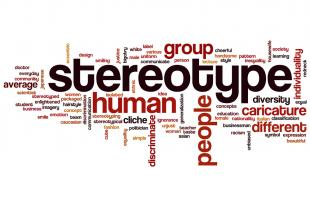Stereotypes and Their Effects on Teenagers
Stereotypes are things we’ve all experienced at least once in our lives, but how much do they actually affect the behavior and productivity of teenagers?
January 22, 2021
Many modern stereotypes label teenagers as lazy, rebellious, inattentive, or irresponsible. These stereotypes are floating around the internet, social media, and everyday life, and most teens are exposed to numerous stereotypes daily. Studies show that these stereotypes actually have an effect on how well teenagers do in life.
According to multiple studies, the biological changes that cause teens to be seen as destructive or risky can also encourage good changes, depending on the individual’s environment. Northwestern University School of Education and Social Policy says that research done by developmental psychologist, Yang Qu, and psychology professor, Eva Pomerantz, shows that teenagers will work better when they think of themselves as responsible. In the days following a session about responsible teenage behavior, teens that were shown counter-stereotyping examples and instruction exhibited less risk-taking behavior and were more engaged in academics.
Other studies also show that teenagers whose parents anticipated their future behavior to be negative, had higher reports of negative behavior. According to Science Daily, “By thinking risk-taking or rebelliousness is normal for teenagers and conveying that to their children, parents might add to other messages from society that make teenagers feel abnormal if they are not willing to take risks or break laws.” Teenagers are less likely to counter the influence to be risky or rebellious due to the presence of societal stereotypes that label them as such.
Maurice Devlin, a professor at Maynooth University, wrote a study for The Equality Authority about stereotypes and young people. Teenagers were asked if they thought that media accurately represented teenage behavior, particularly how modern teenage behavior is poorer than other generations. “The range of answers included the view that it was inaccurate and distorted (treating the behaviour of a minority as if it was typical); that it was true (or not entirely false) but reflective of the broader society and culture and therefore that focusing so much on young people was unfair; and that, if it was true, there was insufficient attention to the possible reasons for it (e.g. increased pressures and choices) and that the media’s sensationalism might actually be making it worse.” Many of the teens in the study agreed that adults had the same behavior, and that the stereotypes should not be limited to teenagers.
Overall, negative stereotypes are negatively impacting teenagers and their behavioral norms, which could have an effect on them throughout the rest of their lives. These stereotypes should be removed, or at the very least changed to have a positive outlook.














